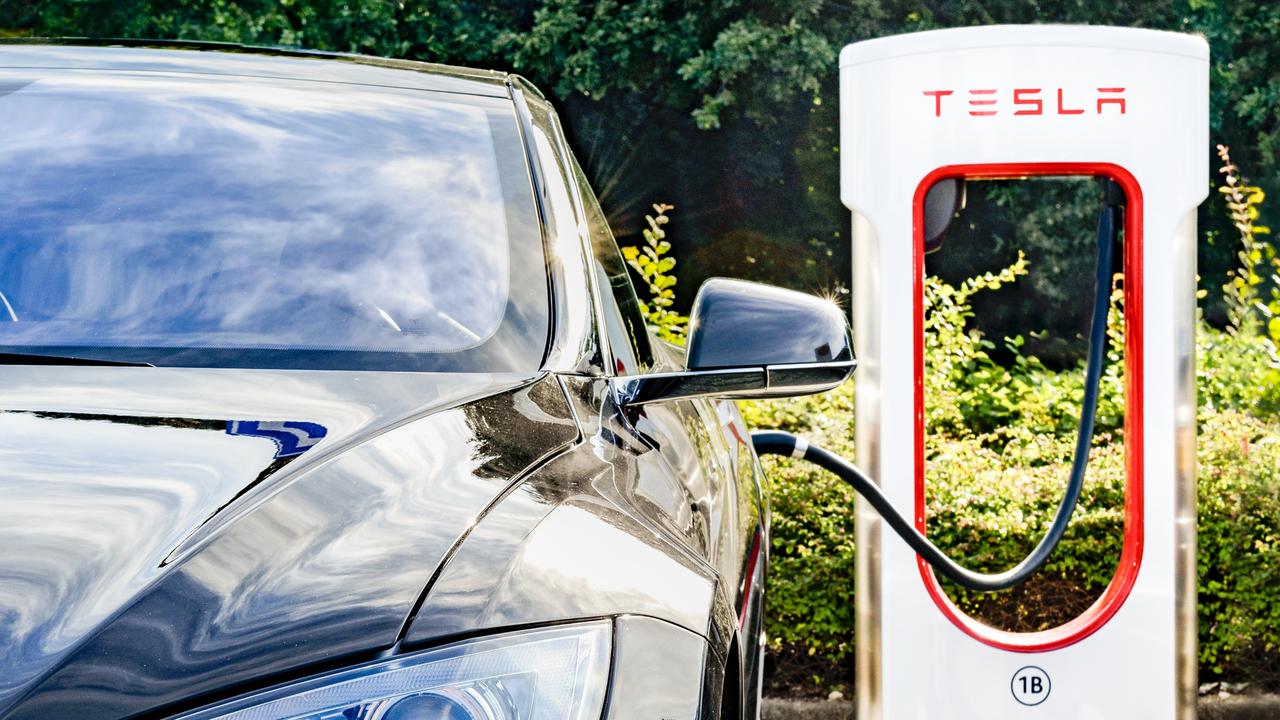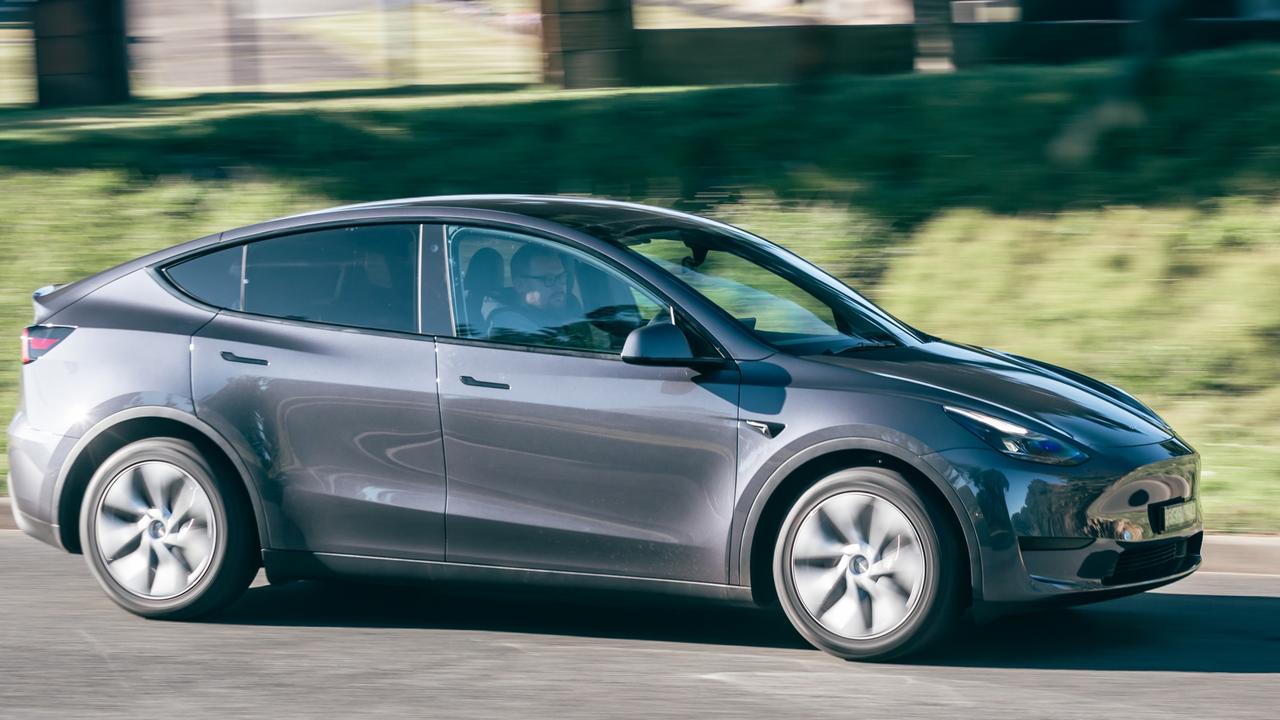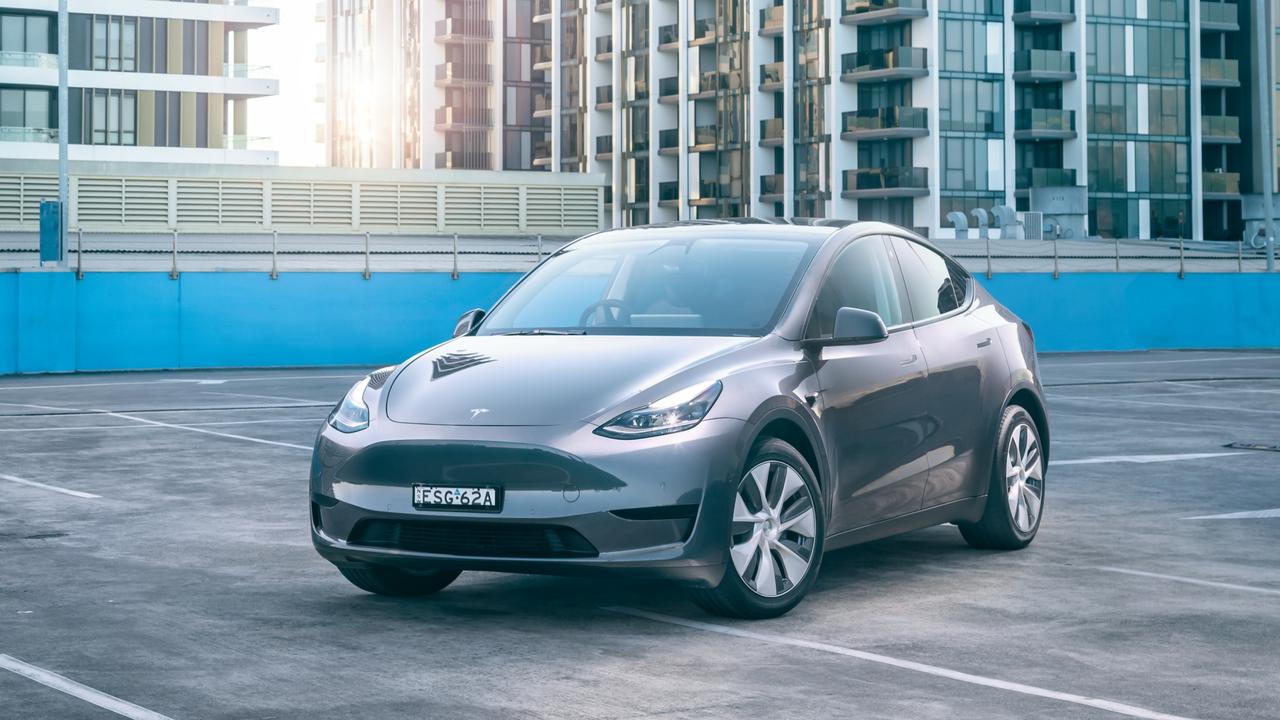Best and worst Australian states for taking up electric vehicles
Aussies have reacted after a new report revealed which states and territories are taking up EVs and who is doing the least. Have your say.
Motoring News
Don't miss out on the headlines from Motoring News. Followed categories will be added to My News.
Sales of electric cars have risen by 65 per cent this year, but not all states and territories are pulling their weight in encouraging EV uptake, according to a new report by the Electric Vehicle Council.
Australians have reacted to the news after the EV Policy Scorecard marks governments on the measures taken to boost EV sales including incentives, charging infrastructure and taxes.
NSW and the ACT lead the pack, while South Australia and Western Australia lag behind.
The ACT and NSW jurisdictions scored eight out of 10, well ahead of Queensland on six and Victoria on five.
All the other states and territories were awarded fail marks.
South Australia, Western Australia and the Northern Territory scored four out of 10 and Tasmania scored three.

NSW and ACT were applauded for committing to EV uptake targets for their government fleets. Both also offer the most generous incentives and have above average public charging infrastructure.
Queensland falls behind on charging infrastructure and for offering middling incentives for EV uptake.
The Victorian government was slammed for being the only jurisdiction in the country to slug electric car owners with a road user charge that’s estimated to cost more than $1600 over five years.
The policy effectively double taxes owners of plug-in hybrid electric vehicles (PHEVs), which can travel for short on electricity but have a petrol engine for longer journeys.

Victoria and NSW were applauded for their approach to electrifying the public bus network.
South Australia, Western Australia and Northern Territory all fall behind in setting vehicle targets for government fleets and general sales.
Their incentives aren’t up to scratch and they have made little to no progress on moving to electric trucks and buses.
WA has better charging infrastructure, especially at workplaces, than the other two. SA fell behind on charging despite the state’s dependence on renewable energy.
The report also shows that despite a recent uptick in EV sales, Australia still trails the rest of the world.
News Corp readers had mixed reactions to the report, with one saying: “The statement that some states are not ‘pulling their weight’ is based on the flawed premise that governments should be encouraging purchase of EVs. They shouldn’t. If the manufacturers aren’t selling as many as they want, they need to look at why and then fix those problems. It might be price, it might be features, it might be - despite the lies of EV promoters - they are not substitute goods for petrol and diesel vehicles.”
Another wrote: “I really love the assumption that people actually ‘want’ an EV, and are somehow ‘laggards’ if they are slow to drink the climate emergency cool-aid. It shows me that SA & WA have less gullible people. EVs are for inner-city rich Socialists. Once they’ve all bought one, there’s no market left.”
Are you in favour of EVs? Have your say below.
Sales of EVs and PHEVs make up about 3.4 per cent according to the Electric Vehicle Council’s latest report.
The EVC’s head of policy, Jake Whitehead, says more needs to be done to encourage growth.
“It’s great to see so much momentum behind EV sales in Australia, but to put our 3.4 per cent in context – Germany sits at 26 per cent, the UK at 19 per cent, and California at 13 per cent. The global average is 8.6 per cent so Australia has a long, long way to come,” said Dr Whitehead.

The best selling fully electric vehicles are the Tesla Model 3 (8647), Tesla Model Y (5376) and Hyundai Kona Electric (897).
The EVC has called on the Federal Government to introduce an enforceable CO2 emissions target for carmakers and to ban the sale of petrol and diesel vehicles nationally by 2035.
But Sean Hanley, the head of sales and marketing of Australia’s most popular car brand Toyota, poured cold water on the idea of abandoning petrol and diesel engines in the short term.
“We agree you’ve got to get to carbon neutral. All we disagree with is how and when you get there and to be honest some of this belief you can go full electric in 10 years in this country and satisfy the punters, satisfy the owners, satisfy what they want to do in cars is a very difficult proposition.”
Mr Hanley said a range of technologies were needed to reach carbon neutrality, including hybrid vehicles. Roughly a third of Toyota sales are hybrids.
More Coverage
Originally published as Best and worst Australian states for taking up electric vehicles









